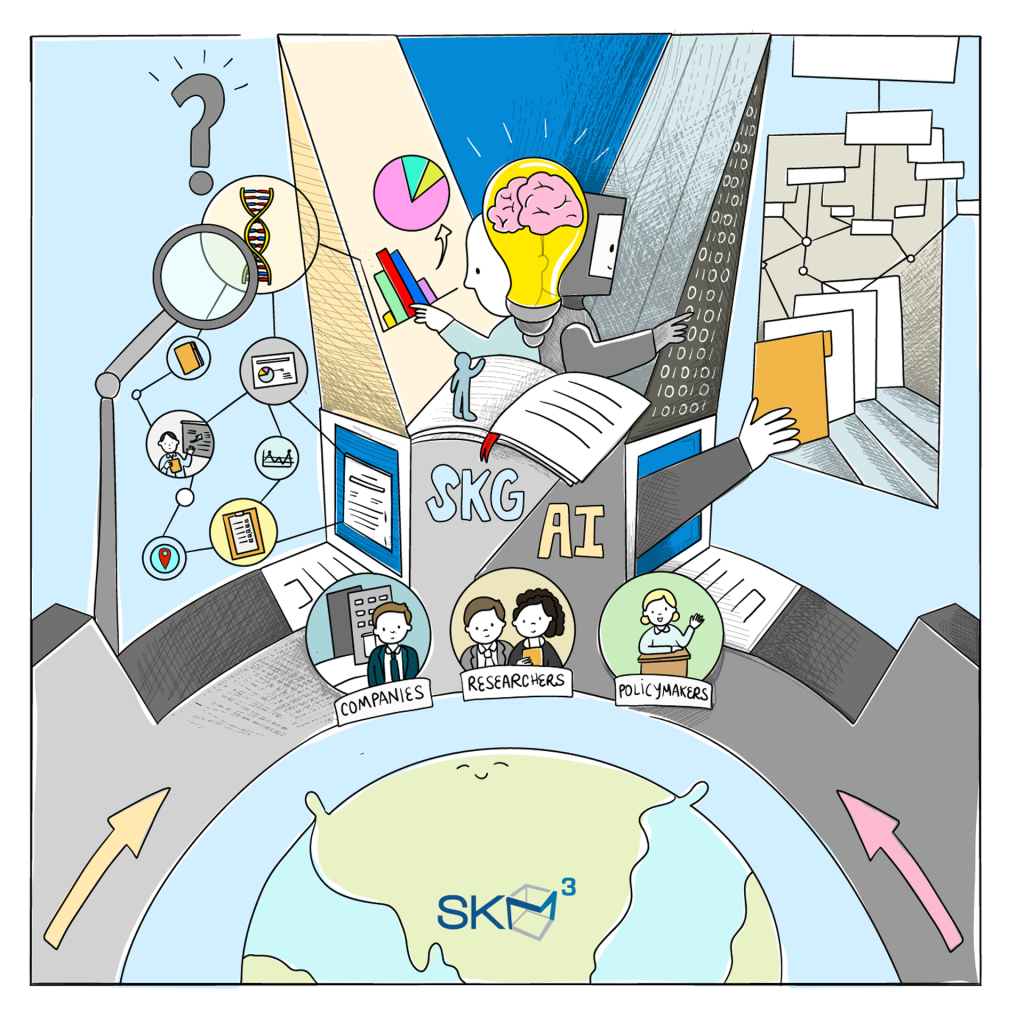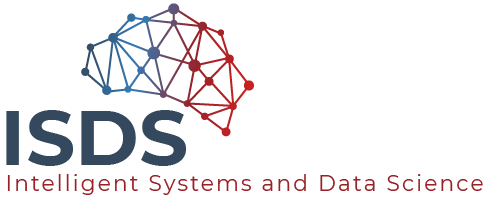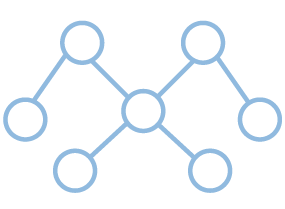Our research leverages the combined capabilities of Artificial Intelligence (AI) and Scientific Knowledge Graphs (SKGs). These graphs provide a way to structure and represent scientific information, enabling AI to analyse complex research concepts.
Their combination facilitates us in developing novel approaches and large-scale tools to analyse trends, explore research data and metadata, automatically generate literature reviews, generate research hypotheses, and organise research topics.
Ultimately, these groundbreaking tools allow researchers, companies, and policymakers to rapidly understand the scientific landscape as well as develop new strategies to accelerate scientific discovery and innovation.
These include Springer Nature, the world leader in academic and scientific publishing, which has been using our tools for over a decade to enhance significantly their publishing process. These innovations have revolutionised the way research publications are enriched with metadata, disseminated, and accessed. Our tools transformed editorial interactions with the research community and enabled AI-driven analytics to inform decision-making.

The image represents our research illustrating the synergic relationship between humans and AI. Humans excel at modelling, structuring, and organising data through Scientific Knowledge Graphs (maps of how research concepts connect) and making sense of the results (statistical charts). AI, on the other hand, symbolised by the robot, can efficiently analyse and process vast quantities of documents. This human-AI partnership leads to various application tools (symbolised by the gear) that have a direct application for researchers, companies, and policymakers, ultimately benefiting the world. Finally, this synergy, represented by the brain-filled bulb, allows humans and AI to achieve more together than they could individually.
We would like to thank Melisa Machuret (https://x.com/WhiteBoardG, https://melisamachuret.com/) for her creativity in this piece of art.



 Scholarly Knowledge Mining
Scholarly Knowledge Mining
 Digital Humanities
Digital Humanities
 Data Science
Data Science
 Smart Cities and Robotics
Smart Cities and Robotics
You must be logged in to post a comment.